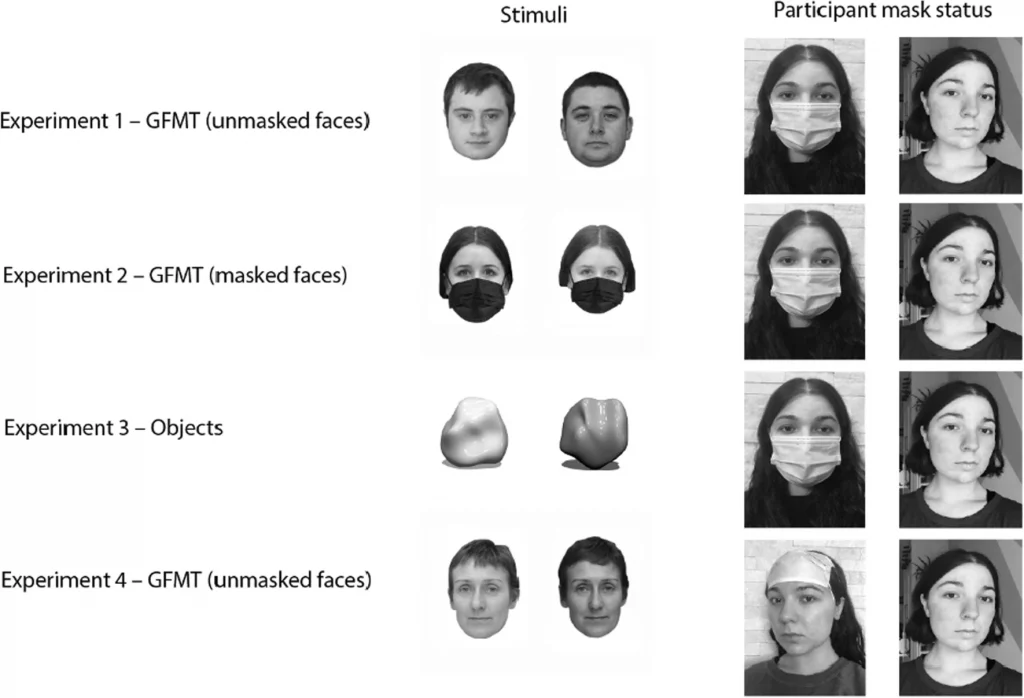Medical masks have become a new normal for many of us, and with COVID-19 still prevalent across Canada, they’re likely here to stay.
By now we know that medical masks can affect our ability to recognize faces — but a new study has taken this one step further, finding that wearing a mask can make it harder for you to recognize other people regardless of whether or not they’re masked as well.
The study was led by Erez Freud, an Assistant Professor in the Department of Psychology at York University, and published in Cognitive Research: Principles and Implications.
Can mask-wearing affect your perception abilities?
Medical masks have made a big difference in the fight against COVID-19, but it’s no secret that they affect everything from our nonverbal communication to our ability to recognize faces. The researchers behind this study were interested in learning how wearing a mask can affect our perception of other people who may or may not be masked as well.
“We are actually participating in the biggest experiment in human history in terms of face perception,” Freud said in an interview with Research2Reality last year.
“All of us are wearing masks all day long, and we need to recognize different people around us. We are trying to understand how face perception abilities are impacted by […] the occlusion of half of the face.”
To learn more, the researchers carried out four different experiments with participants who were shown masked and unmasked faces with their own mask on or off. In each experiment, the participants were shown two photos of either the same person or two different people. They were then asked to identify whether they were seeing the same person.

The researchers were surprised to find that wearing a mask can impact your ability to recognize a face, regardless of whether or not that face is masked as well. In other words, masked study participants had more trouble recognizing masked and unmasked faces than unmasked study participants.
To test whether masks impacted our overall perception abilities, the researchers carried out a third study where participants were asked to identify objects. Interestingly, masked and unmasked participants scored similarly in this experiment. Wearing a mask only seemed to impact participants’ ability to recognize other faces.
We are what we perceive
The researchers believe that this could be due to the fact that when we wear masks, we assume that others won’t be able to recognize us. This could in turn affect our ability to recognize others.
“Masked observers might think their own faces are less recognizable and that could lead to reduced face processing abilities,” Freud explained in a press release.
“This might have to do with how people view things from other people’s perspectives, a process called alter centric intrusion.”
The researchers also wondered whether the constant stimulation to the lower part of the mask wearer’s face could affect their ability to recognize these same areas in others. Yet in a fourth experiment, the team found that wearing a mask on other parts of their face (for example, the forehead) didn’t affect the participants’ face recognition abilities.
The results of this study can help us understand how we’re being perceived — and how we’re perceiving others — during this new normal.
If you don’t recognize someone right away, it’s likely not your fault. Your mask may be blocking not only germs, but your face perception abilities as well!








































